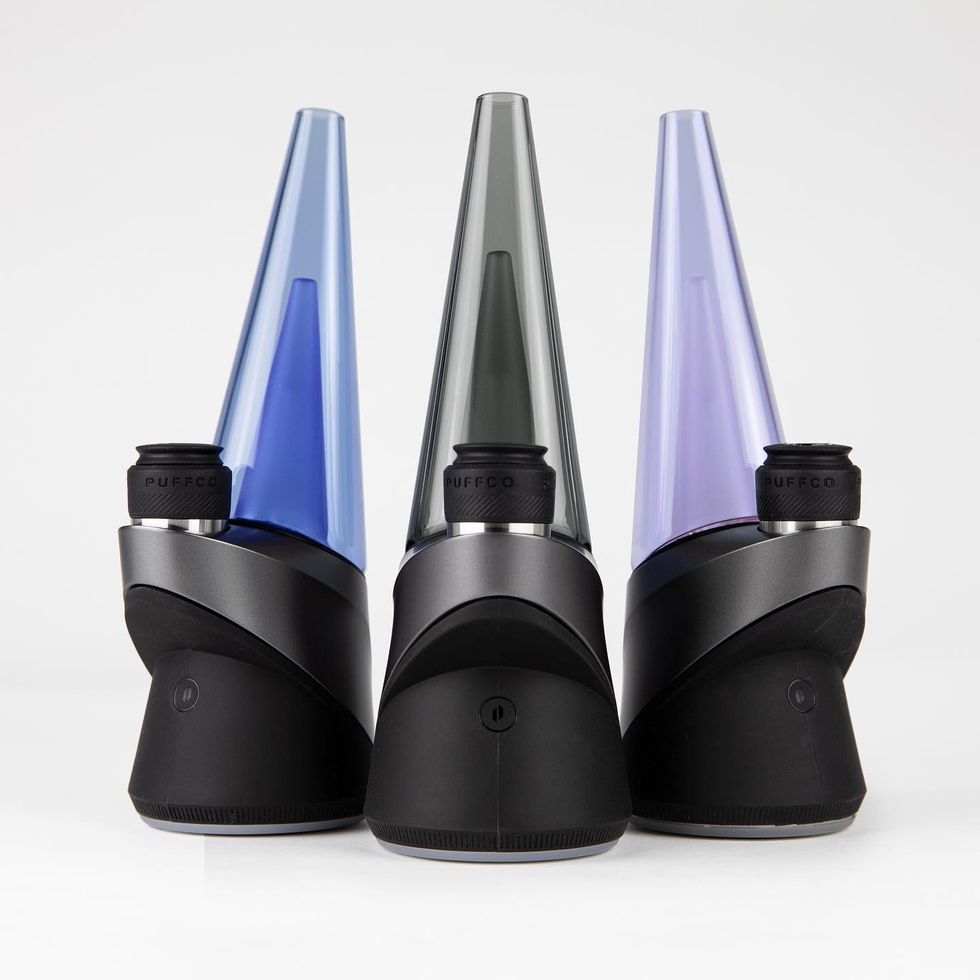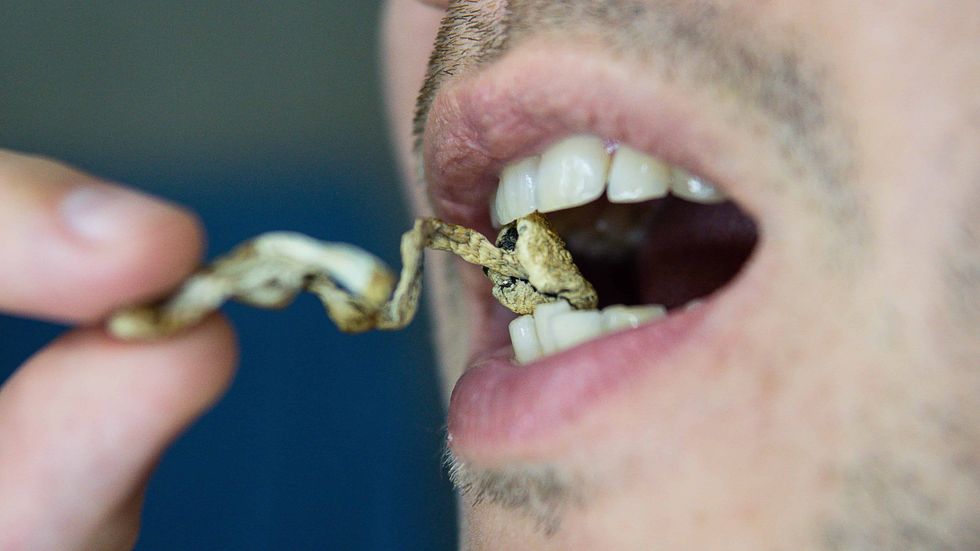Sign Up for The Bluntness Newsletter for Your Weekly Dose of Cannabis News
Those hit hardest by the war on cannabis? Black, brown, and poor communities.
While I always make it a point to never bum people out while enjoying cannabis, the next time you burn one down, it might be worth taking the time to reflect on just how dangerous the plant was — and, depending where you live, still can be — for enthusiasts all over the country.
And of course, I’m not talking about health risks: FBI crime data indicates that there were 663,367 marijuana arrests nationwide in 2018 — a perhaps surprising increase from 2017’s 659,700 and 2016’s 653,249, especially as a growing number of states elect to legalize its use for adult recreation.
“The marijuana war has imposed arrests, prosecutions, and convictions on individuals and communities, separated families, and deprived people of child custody, immigration status, voting rights, eligibility for public housing, financial aid for education, and access to employment,” David Schlussel writes in the California Law Review. Even those arrested but not convicted can face significant social hurdles for the rest of their lives, he adds: “[Arrest] databases, used by prosecutors, police, employers, and landlords, ‘will haunt many for life.’”
Those hit hardest by the war on cannabis? Black, brown, and poor communities. In fact, an extensive ACLU analysis of marijuana possession arrests from 2001 to 2010 in all 50 states and Washington, D.C. found that, on average, a black person was nearly four times as likely to be arrested for marijuana possession — despite roughly equal rates of usage among both populations.
“In some states, black people were more than six times as likely as whites to be arrested for possession; in some counties, the magnitude of disparity reached ten, fifteen, and even thirty,” Schlussel notes.
That means responsible cannabis users (yes, you!) have a moral obligation to support increased social equity in our state’s legal markets: to not only broaden access to ownership in the industry itself, but achieve restorative justice for the communities most ravaged by the unequal war on drugs.
As more and more states legalized marijuana over the past decade, it seems some policymakers have come around to recognize that responsibility, too. But how have lawmakers addressed social equity issues in their legal marijuana markets? And are they working?
1. Remembering communities disproportionately affected by the drug war during the licensing process.
There are no official statistics with a demographic breakdown on cannabis-business ownership, the limited data we have available paints a picture that is...not great!
“Based on more than 150 interviews with dispensary owners, industry insiders, and salespeople who interact with a lot of pot shops, it appears that fewer than three dozen of the 3,200 to 3,600 storefront marijuana dispensaries in the United States are owned by black people—about 1%,” Buzzfeed’s Amanda Chicago Lewis reported in 2016.
An August 2017 survey of 567 self-identified senior executives, owners, and founders polled by Marijuana Business Daily found only 17 percent of them were minorities. In 2019, the same publication found that less than one in five cannabis businesses nationwide are minority-owned.
As a result of these troubling trends, Massachusetts’s legalization initiative called to help those “disproportionately harmed by marijuana prohibition and enforcement” to get into the business. That prompted regulators with the state’s cannabis commission to develop a “social equity program,” providing benefits, assistance, and “priority review” to applicants of color and those from poorer neighborhoods.
And while Boston’s soon-to-be-opened first cannabis dispensary is run by two black owners who qualified for social equity assistance, the efforts don’t seem to be catching on statewide — yet. About two percent of the state’s cannabis license holders are minorities, though when prospective staffers, executives, and board members are included in those figures, it increases to as much as 27 percent. However, additional minority-owned businesses remain in the licensing pipeline, according to the Associated Press.
Other states and cities have taken similar steps: in Illinois, certain “social equity” applicants receive additional qualifying points in the licensing process, and Oakland, California passed a law that prioritizes applicants with prior weed convictions.
While a worthwhile start, the figures indicate there is still much to be done to increase the number of minority-owned cannabis businesses.
2. Addressing the wealth gap and start-up costs at a policy level.
Of course, access to cash is a big hurdle for any kind of new business — but especially so when that business is openly violating federal drug laws, no matter what your state’s rules may be.
Despite the product’s varying legality in 33 states, cannabis-related businesses are largely unable to access basic banking and credit services, largely because financial institutions remain spooked by the existing federal prohibition on marijuana. And I do mean basic: most in the business can tell you stories about having trouble even securing a checking account, let alone lines of credit.
Include the high average startup costs — a price tag that can often exceed seven figures in some states — and it’s easy to see why it can be nearly impossible for entrepreneurs without access to some kind of private wealth to get started in the industry.
There is data to back this up: A 2019 Marijuana Business Daily study asked cannabis-related businesses to identify the sources of their start-up capital:
.
In a country like the U.S. — where, according to the New York Times, for every $100 in white family wealth a black family holds just $5.04 — this industry reliance on private wealth and personal networks benefits, largely, white entrepreneurs and affluent communities. And yeah, it’s not a great look for the industry.
In Massachusetts, its social equity program does provide eligible applicants with “assistance in identifying/raising funds or capital,” along with other kinds of services: employee trainings, accounting and sales forecasting, business plan creation and operation development, and more.
Illinois lawmakers created the Cannabis Business Development Fund, which provides financial resources for cannabis start-ups that qualify under their state’s social equity program — including low-interest loans. Experts believe that fund should increase to as much as $30 million in the coming year. Some cities in California, such as Oakland, are also setting up similar funds at the municipal level.
Experts at the Drug Policy Alliance point to other ways lawmakers could lower these high barriers to entry, too: establishing smaller license categories, and scaling application fees based on the size of the proposed business.
3. Making expungement automatic, or barring that: easy, simple, and fast.
Not every victim of the drug war is interested in opening a cannabis business — most just want their lives to go back to normal.
California’s 2016 ballot proposition legalizing the sale of recreational cannabis was the first of its kind to explicitly include provisions expunging cannabis-related criminal records, though other states (e.g. Oregon and Colorado) would add similar provisions after their initial legalization bills had passed.
While California’s move sounded good on paper, once enacted, it quickly ran into problems: in particular, the process to clear one’s record was so burdensome that most who qualified for expungement declined to even try in the first place. Applicants would need to retain an attorney and make multiple appearances in court, among other hardships.
“Frankly, very few people took the legal action required to clear their records,” L.A. County Dist. Atty. Jackie Lacey told reporters last year. “And yet, the will of the voters was clear.”
California lawmakers later amended the provision to shift the onus onto the state to clear those records — even if the individual didn’t realize they were eligible. Some convicted of crimes will be able to completely clear their record, while others will see their records dropped from felony to misdemeanor offenses. Hundreds of thousands are expected to see their criminal convictions either cleared or significantly reduced (e.g. from a felony to misdemeanor charge) by this year.
n Illinois, lawmakers took a page from California’s playbook, making its expungement process automatic. Anyone arrested — but not convicted — for a non-violent, cannabis-related offense involving 30 grams or less will automatically have their records cleared by state police. Those convicted of a similar offense have a lengthier, but still automatic, process for clearing their records. State officials estimated that over 750,000 people in the state would be affected by the change.
Other areas continue to lag behind the curve: Michigan, for example, is one of the latest states to legalize recreational marijuana without making expungement automatic, leaving about 235,000 residents in a legal limbo. Two state lawmakers there introduced a bill late last year to simplify and streamline the process.
4. Spending tax revenues to benefit communities most affected by the war on cannabis.
“We can’t always heal injury, but we can acknowledge and compensate for it,” Jamelle Bouie wrote in his piece, The Case for Marijuana Reparations. “Any plan for [marijuana] legalization should come with a plan for reparations for those communities most damaged by our misguided war on marijuana. That doesn’t mean individual payments—the logistics are too difficult—as much as it does policies for affected communities, from job training and educational services...all funded by a surtax on marijuana sales and distribution.”
Many states, to some degree, are taking small steps in that direction: California and Massachusetts both invest a share of their cannabis tax revenues into communities most adversely impacted by the war on drugs.
In Illinois, 25 percent of all cannabis revenue and licensing fees will be allocated to the state’s Recovery, Reinvest, Renew program, providing services to those communities that were “disproportionately impacted by violence, poverty, and uneven enforcement of cannabis-related laws.” The state is currently reviewing which communities will qualify for the program.

















 The Puffco Peak Pro brings style and ease to cannabis dabbing.Image from Puffco on Facebook
The Puffco Peak Pro brings style and ease to cannabis dabbing.Image from Puffco on Facebook The Puffco Peak Pro is easy to hold AND easy to use.Image from Puffco on Facebook
The Puffco Peak Pro is easy to hold AND easy to use.Image from Puffco on Facebook The Puffco Peak Pro allows you to appreciate cannabis and innovation at the same time.Image from Puffco on Facebook
The Puffco Peak Pro allows you to appreciate cannabis and innovation at the same time.Image from Puffco on Facebook
 How Long Do Shrooms Last? Magic Mushroom Guide for Beginners - The Bluntness
How Long Do Shrooms Last? Magic Mushroom Guide for Beginners - The Bluntness Psilocybin can provide a life-altering experience. -The Bluntness
null
Psilocybin can provide a life-altering experience. -The Bluntness
null
 “Don’t diddle the dose. Once you have done your homework, go for it.” -- Terence McKenna
The Bluntness
“Don’t diddle the dose. Once you have done your homework, go for it.” -- Terence McKenna
The Bluntness These mushrooms taste gross, but there are ways around that.The Bluntness
These mushrooms taste gross, but there are ways around that.The Bluntness These mushrooms taste gross, but there are ways around that.
These mushrooms taste gross, but there are ways around that.
 What will you do with that cannabis kief collection? - Make Coffee! The Bluntness
What will you do with that cannabis kief collection? - Make Coffee! The Bluntness DIY: How to Make Kief Coffee - The Bluntness
Photo by
DIY: How to Make Kief Coffee - The Bluntness
Photo by